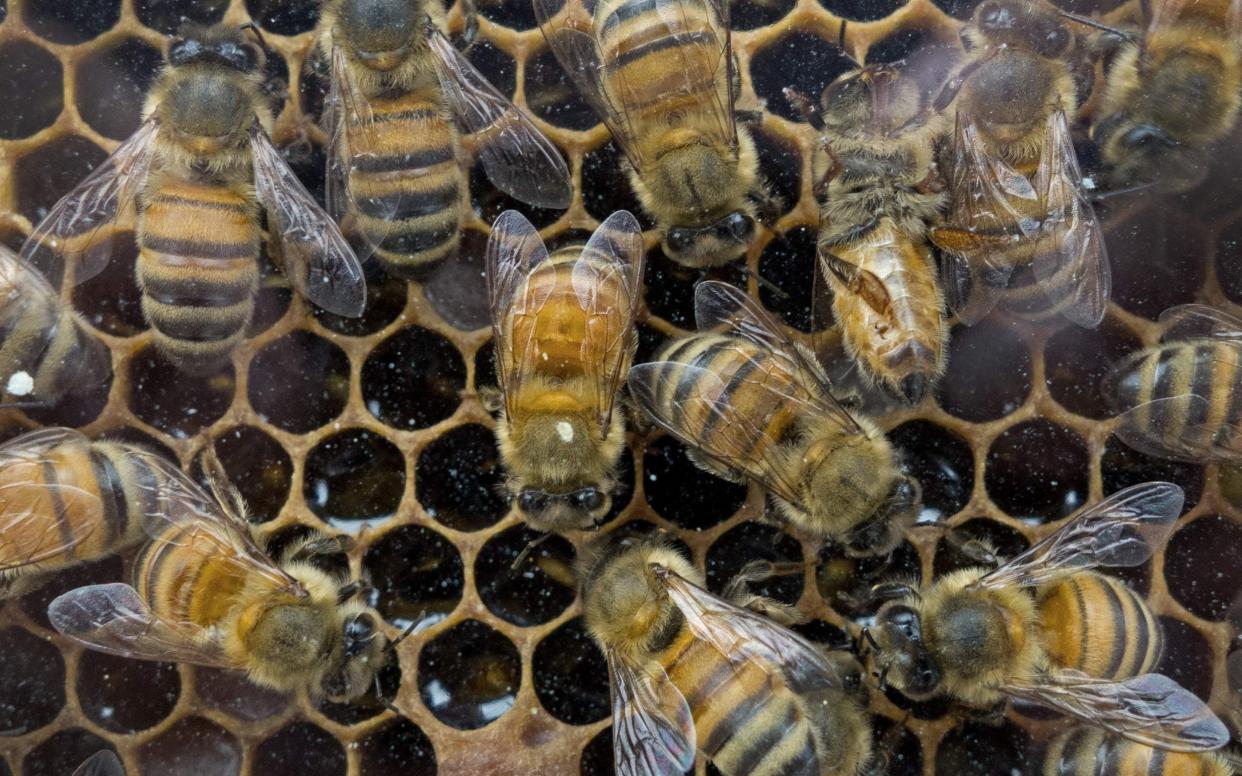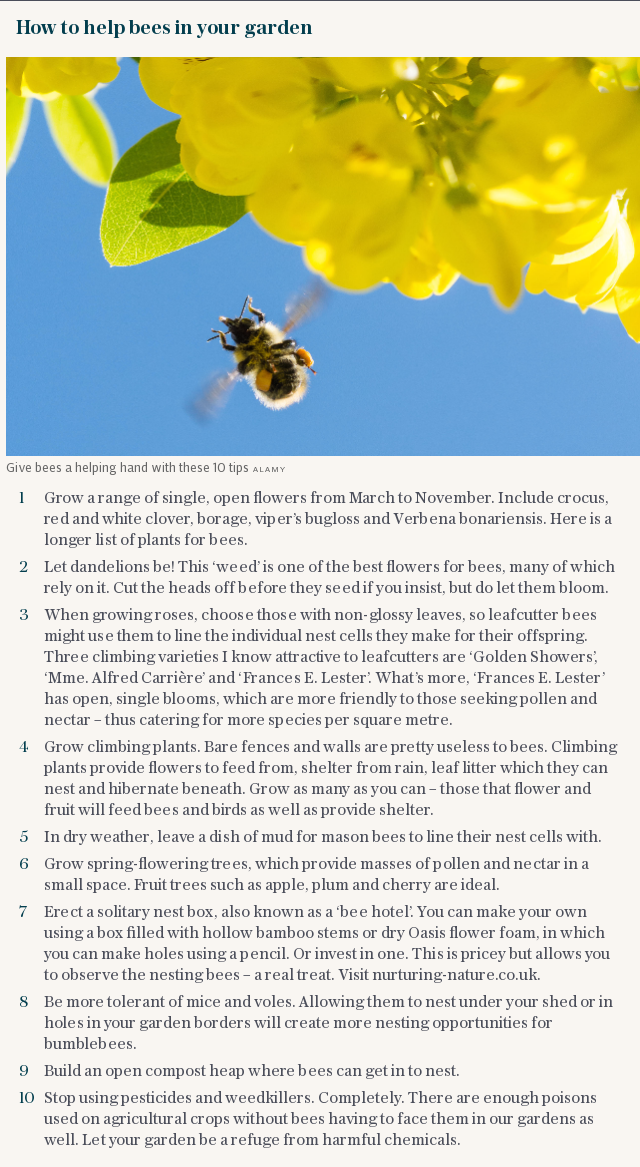Bees have evolved to be city dwellers and prefer urban areas to countryside, study finds

Bees must become city dwellers to in order to survive, according to a new study which found the insects now fare better in towns.
Scientists compared the progress of colonies in urban, village and rural environments and found numbers are roughly three times healthier in built-up areas than in the country.
The researchers at Holloway University believe predators, agricultural pesticides and a reduction of food in rural areas mean city gardens and other green spaces have now become safer and more nutritious for bees than their traditional habitats.
The crucial pollinators are under significant strain, partly due to the intensification of arable farming.
But there has been an increase in the number of urban beehives as more people take up beekeeping as a hobby.

The team captured 176 foraging queens from Windsor Great Park in Surrey and then reintroduced them across 114 sites in London and the South East.
They found the numbers of sexual offspring, the size of food stores, and ability to avoid parasite invasion was all improved in towns.
Published in the Royal Society Journal, the 10-week study is believed to be the first to show a species to demonstrate a direct relationship between ubranisation and reproductive success.
“Reductions in forage availability in modern agricultural landscapes have been identified as a potential major driver of bee population declines,” the authors wrote.
“Accordingly, we found less stored pollen and nectar in agricultural colonies than in city or village colonies, suggesting forage availability may be a contributing factor to poor performance at agricultural sites.”
Last month it was announced an insect “road network” should be created throughout Britain to protect species such as bees, butterflies and moths from decline.
The Ministry of Justice and The Environment Agency are already working with the charity Buglife to identify sites such as prisons, seawalls and floodplains where they could create wildflower habitats.

 Yahoo News
Yahoo News 
